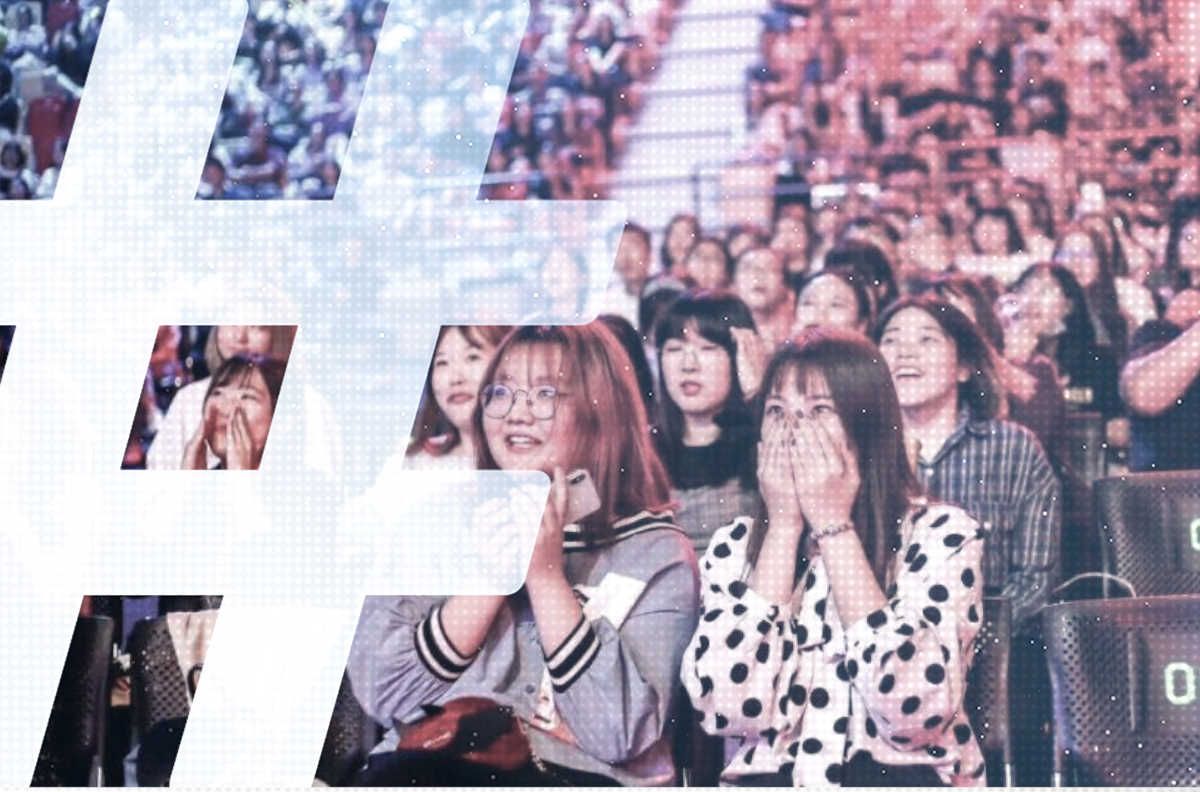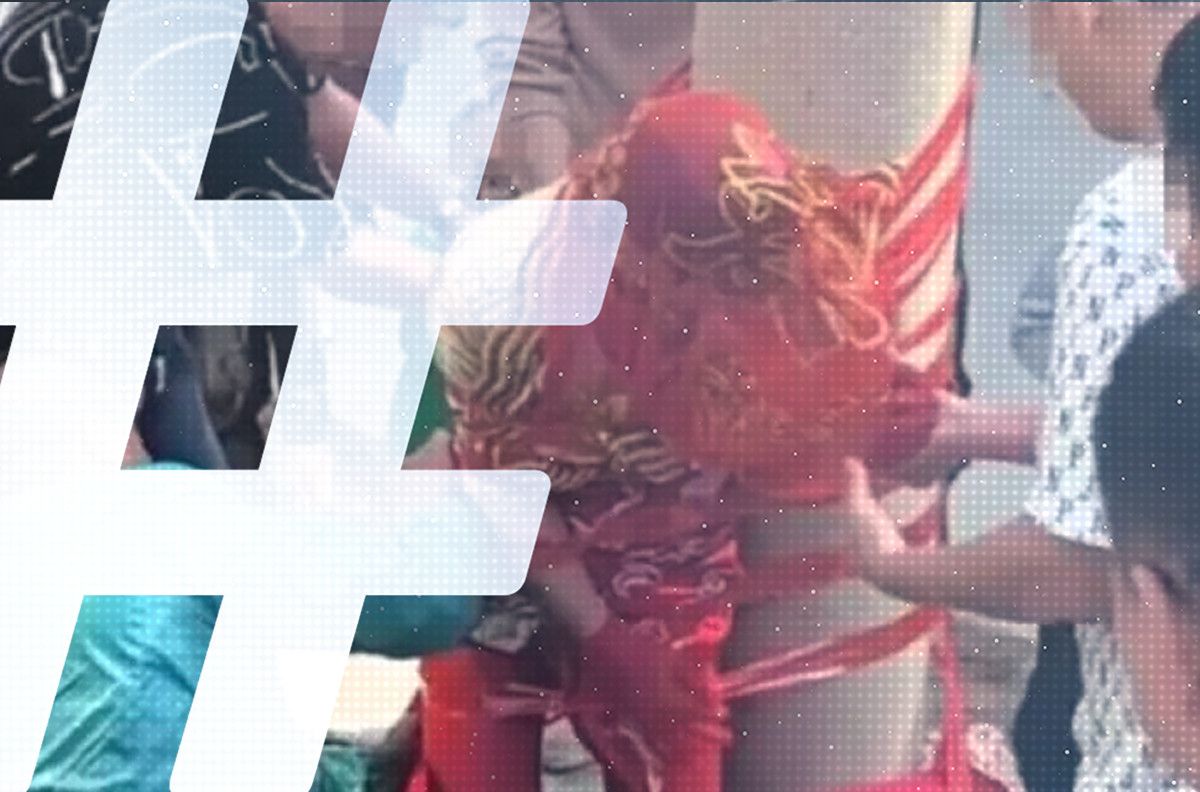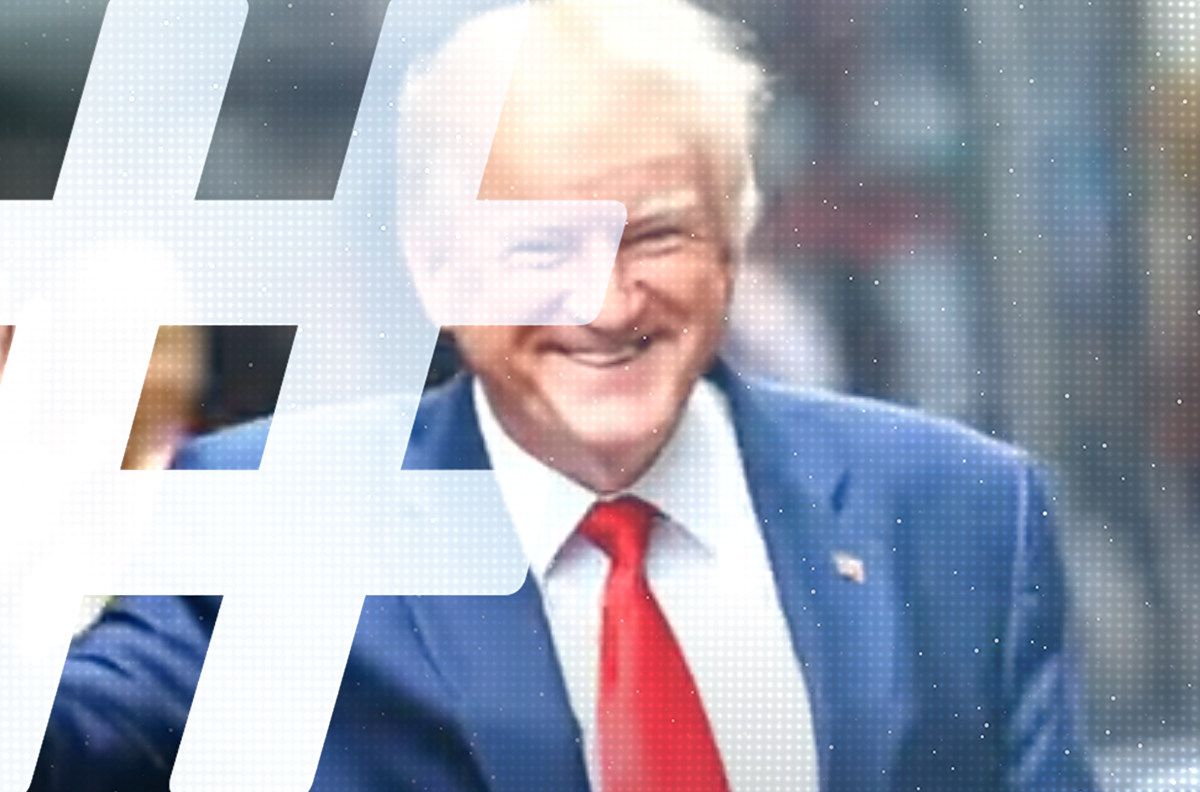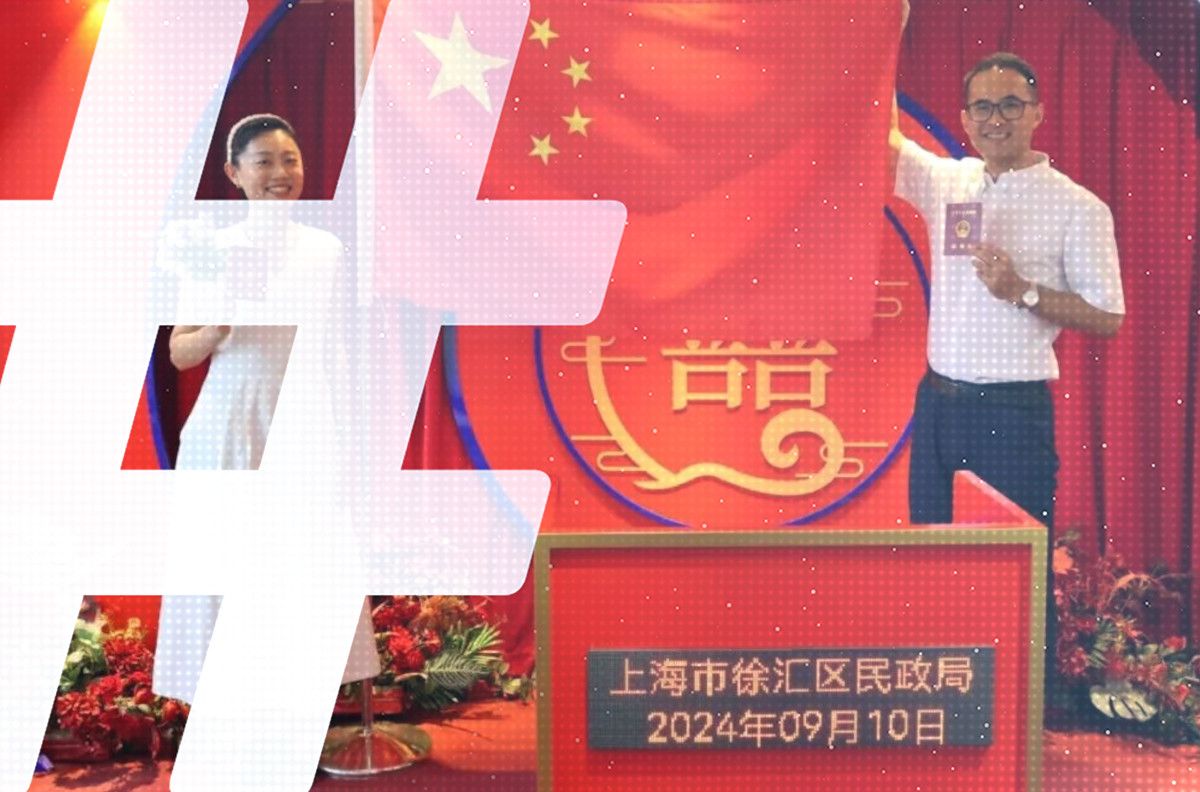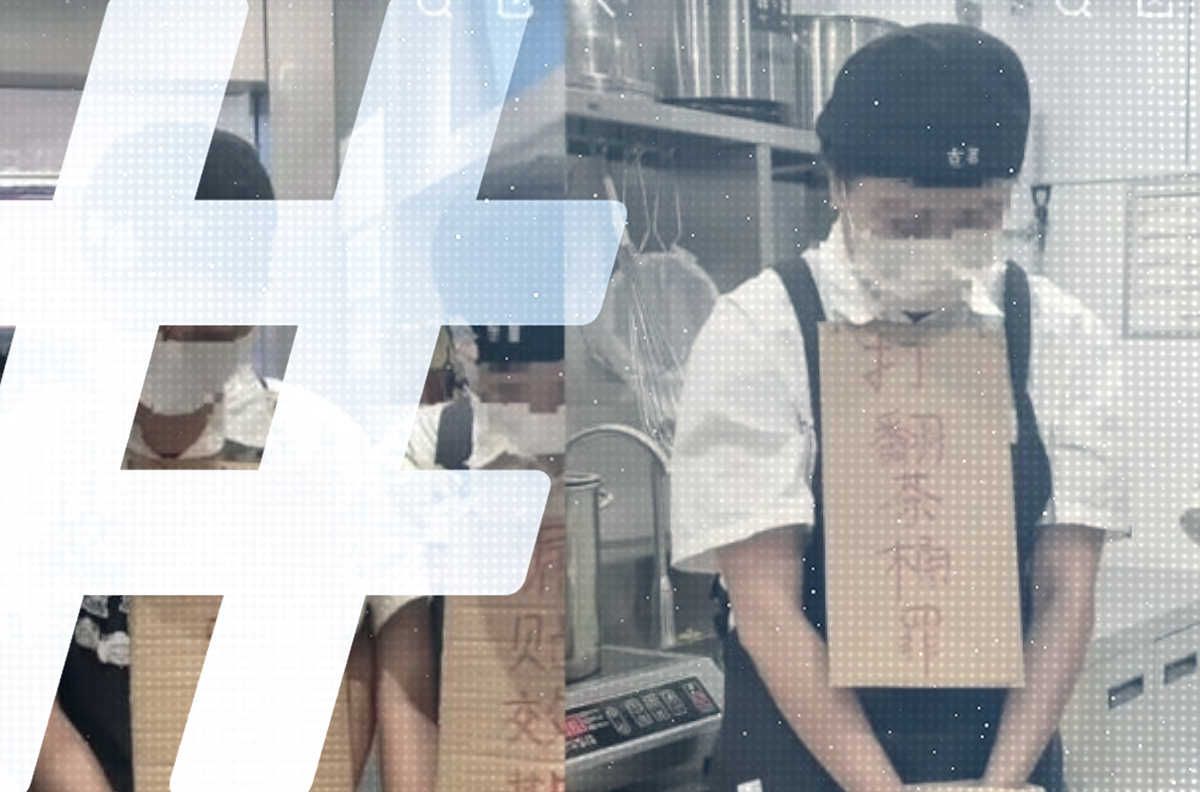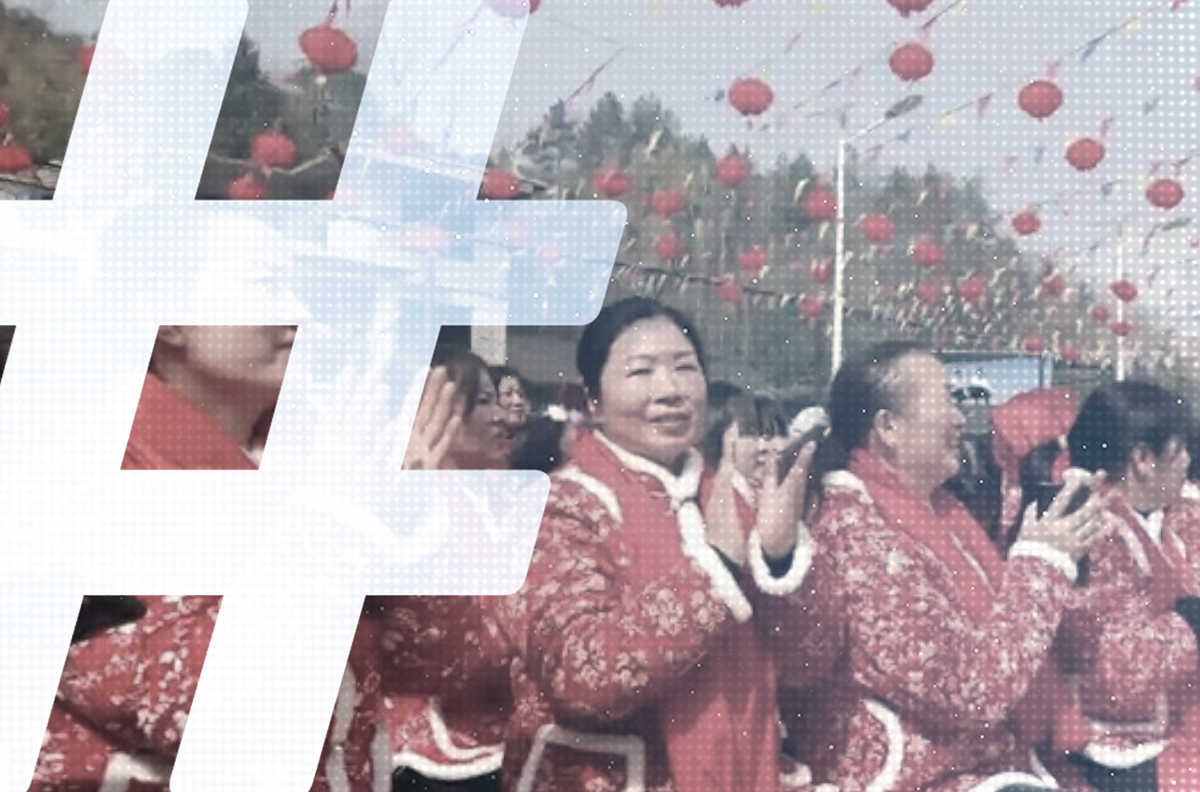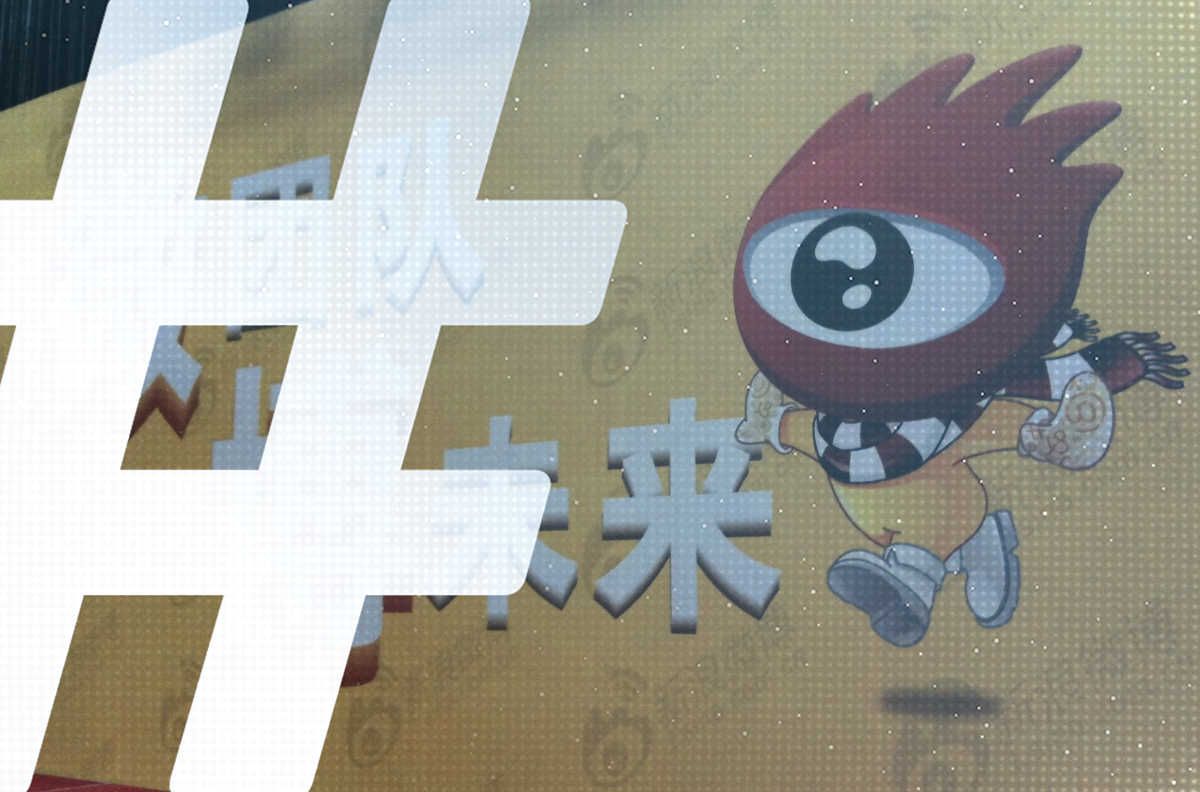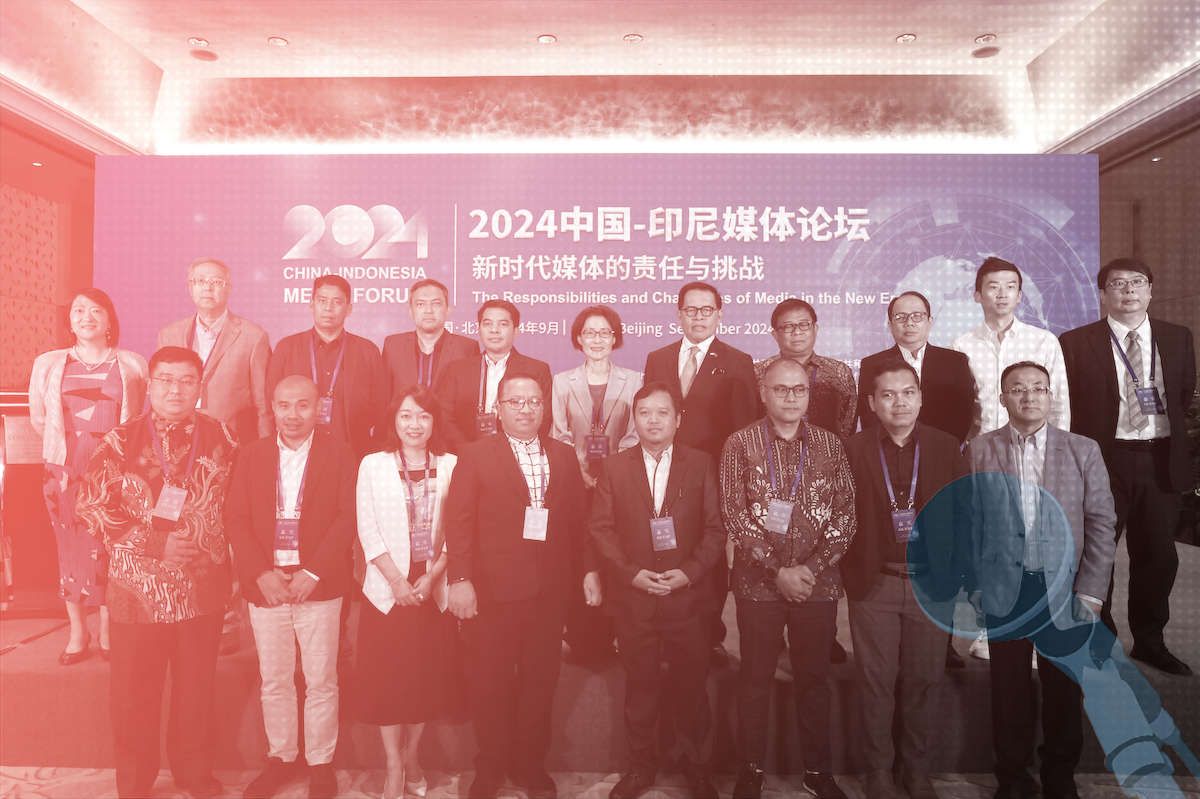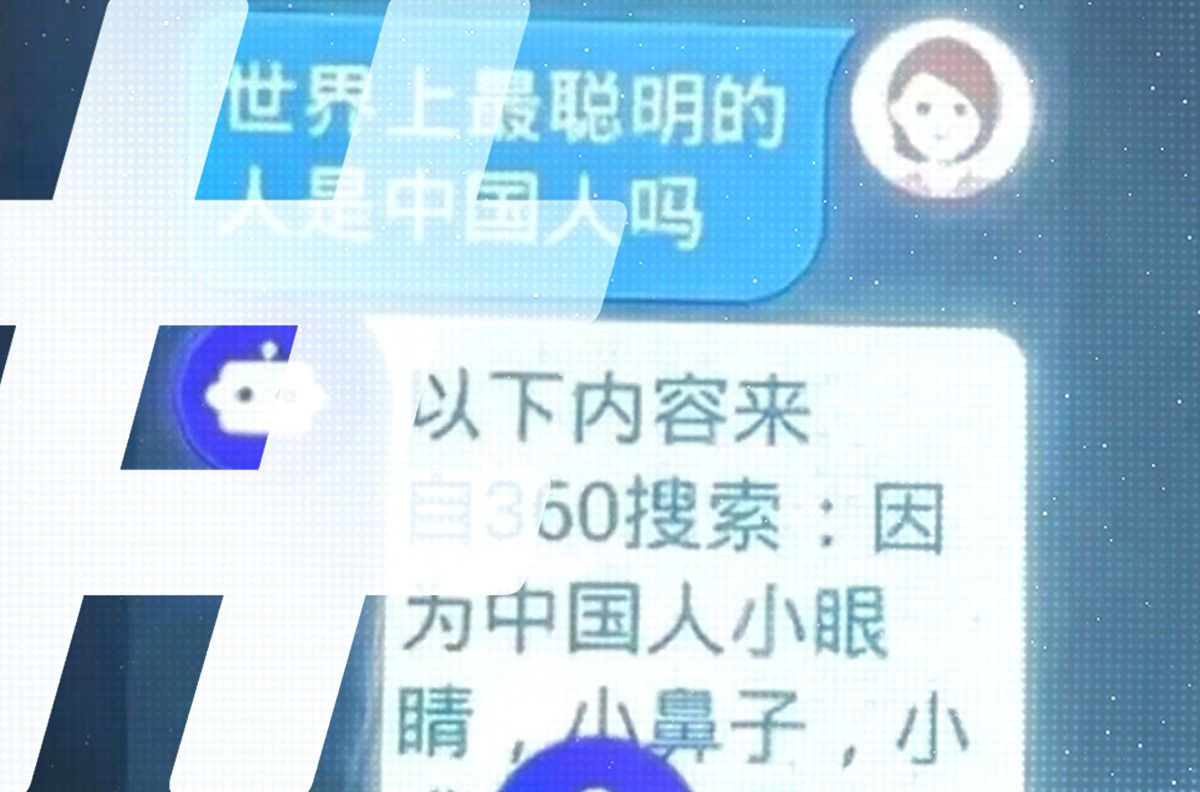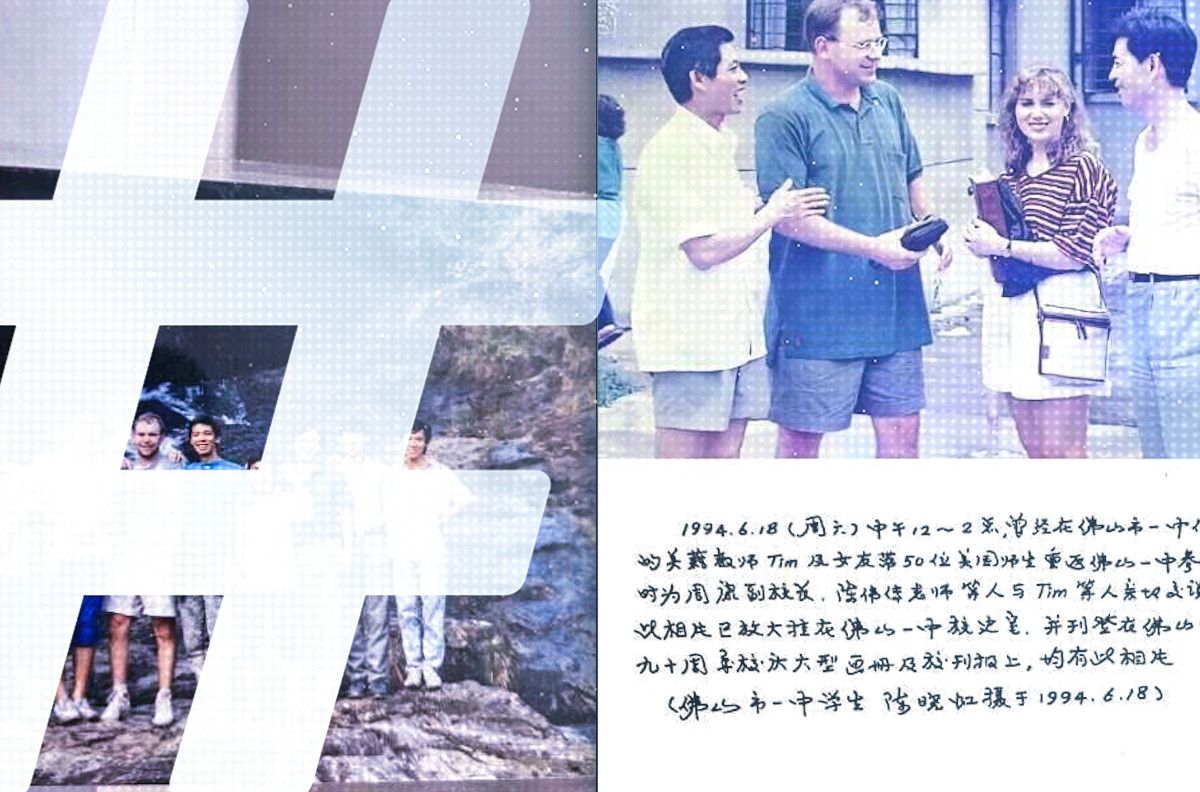The Beijing Daily is on a tear. Earlier this month, the paper — the official daily run by the capital’s top Party leadership — led the propaganda charge against the U.S. for its involvement in the case of blind lawyer Chen Guangcheng (陈光诚). Earlier this week, the paper embarrassed itself with a mean-spirited call for U.S. Ambassador Gary Locke to disclose his personal assets, which in fact have already been disclosed.
Today, the Beijing Daily is beating its drums again, this time openly attacking what it characterizes as the “poison” of the “so-called ‘freedom of speech’ of the West.”
An editorial in the the paper today criticizes “commercial newspapers and magazines” in China — that would be the likes of Southern Metropolis Daily, Caixin Media, Shanghai’s Oriental Morning Post, etcetera — of being infected with a Western notions of journalism that they do not sufficiently understand.
The editorial argues further that the Western concepts of the media’s role do not suit China’s unique “circumstances”.
“Chinese media must sing the main theme,” the editorial said, a reference to the media’s role as propaganda vehicles for the CCP. “This is determined by China’s political system, and accords with the realities of China as a nation of 1.3 billion people. The fact is that for China to develop it must maintain social stability, and it must create a public opinion environment conducive to stability.”
Interestingly, searches for “Beijing Daily” on Sina Weibo have again been disabled, after being restored earlier this week. This has to lead us to wonder how factionalism within the Party might actually be playing out right now through the Beijing Daily. In other words, we could be witnessing the low-level competition of factional propaganda and media control.
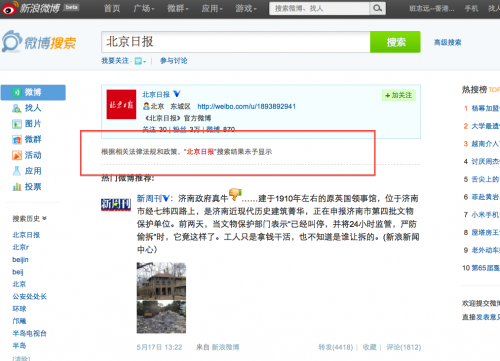
[ABOVE: A search for “Beijing Daily” at 10:50am, May 18, 2012, returns a message that reads: “According to relevant laws, regulations and policies, the search results for ‘Beijing Daily’ cannot be shown.”]
A partial translation of the Beijing Daily editorial follows:
HEADLINE in Beijing Daily: “The Social Role of the Media is to Sing the Main Theme” (唱响主旋律是中国媒体的社会责任)
HEADLINE on QQ.com: “Media Fondness for Negative Reports is a Poisoning by Western Concepts” (媒体热衷负面报道是受西方观念蛊惑)
May 18, 2012
Lately, among the so-called news reports that have attracted people’s eyes, many have been negative reports — food safety issues, conflicts between doctors and patients, construction quality issues, official corruption. Issues like these have appeared in an endless stream. With the build up made by the media, it has seemed that all food in China is “poisonous”, all construction projects are “tofu architecture”, all public officials are corrupt, all social tensions are unusually severe, and our development path ahead is dark and troubled.
. . .
For some time, these sorts of reports have been a trend among certain domestic media, particularly prevalent among certain commercial newspapers and magazines (小报小刊). They enthusiastically disseminate negative, extreme and provocative speech, full of rampant speculation and scandal. They pursue low-brow novelty, and push inciting information, all in order to attract eyeballs. The emergence of this phenomenon has happened partly because of the influence of the so-called “freedom of speech” (新闻自由) of the West, and partly out of the pursuit of profit, with a mind to earning vulgar applause — forsaking the ethical bottom line of the media.
For some time, those Western concepts of journalism and news have been savored sweetly by some. Some media workers (媒体工作者) even suggest that the Western ideas like “freedom of speech” and the “fourth estate” are golden rules and precious precepts. In their eyes, publicizing the development achievements of the nation is “false,” and exposing darkness and misery is an expression of “social responsibility”. In fact, they don’t even understand views of the news in the West. In the two-party and multi-party political environments of the West, different media have different political standpoints, and for the sake of obtaining leadership opportunities, they blow with negative news, raking up bad things about their opponents . . .
Our national situation is different from that of the West, and imitating these “squid-like tactics” (乌贼战术) will only break up and divide social consensus, to the disadvantage of creating a harmonious social environment.
What Chinese society needs is not these media who indiscreetly criticize under the banner of “objective reporting.” Rather, we need media that are responsible and reliable, that truly protect the fundamental interests of the nation, the public and the Chinese peoples.
. . . Chinese media must sing the main theme. This is determined by China’s political system, and accords with the realities of China as a nation of 1.3 billion people. The fact is that for China to develop it must maintain social stability, and it must create a public opinion environment conducive to stability. This is where the responsibility of Chinese media lies, and it is also where the fundamental interests of the people of our country lies.










